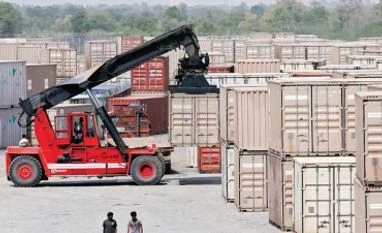Commerce ministry wary of revoking Pak's MFN status
Prime Minister Narendra Modi has called a meeting with top officials on Thursday for a review
)
Amidst reports that the government is seeking to launch an economic offensive against Pakistan, commerce ministry officials are wary of a proposal to revoke the Most Favoured Nation (MFN) status given to the neighbouring country.
ALSO READ: PM Modi calls for meet to review 'Most Favoured Nation' status to Pakistan
While economic offensive can take many forms, revoking Pakistan’s MFN status may harm India’s position in multilateral trade forums, commerce ministry officials told Business Standard on conditions of anonymity.
While the prospect of economic sanctions will have little effect on Pakistan, owing to the small amount of bilateral trade between the nations, revoking the MFN status India granted to Pakistan back in 1996 has been argued as a plausible way of sending a strong message to the country.
The MFN status is governed by the World Trade Organization’s (WTO) General Agreement on Tariffs and Trade (GATT). Countries signatory to the agreement commit against discriminating each other and rest of the WTO member countries. This implies that every time a country lowers a trade barrier or opens up a market, it has to do so for the same goods/services from all its trading partners. Since being established, the MFN clause has been upheld by the WTO it has worked as a bulwark against dubious, partial trade practices by countries and promoted free trade under a framework of mutual openness.
Globally, countries tend not to revoke the MFN in cases apart from economic hostility by a trade partner. Since India cannot complain of harmful trade practices by Pakistan in recent times, revoking the status may make it difficult to explain India’s position to the global community, the official quoted above said. However, the fact that Pakistan has never reciprocated by granting India MFN status, may strengthen our position, he added.
India is also mulling the option of dragging Pakistan to the dispute settlement body of the WTO because of this. However, Pakistan has the choice to cite ‘security exceptions’ in Article XXI of GATT, under which a member-country may not grant MFN to another member on grounds of security as an excuse for withholding MFN status to India, a trade expert said. However, PHD Chamber of Commerce and Industry, with sizeable representatives from Punjab, said it is willing to sacrifice trade with Pakistan for the country.
“We are willing to forego trade with Pakistan because this is the time for cold diplomatic action,” Mahesh Gupta, president, PHD Chamber of Commerce and Industry, said. The chamber, which includes many exporters to Pakistan who trade through the overland Punjab routes, said exports can be increased but only when situation normalises. Bilateral trade between the two nations stood at $ 2.61 billion or just 0.41 per cent of India’s overall merchandise trade in 2015-16.
While exports to the neighbouring country worked out to $ 2.17 billion, or 0.83 per cent, of the total Indian outward shipments, imports from Pakistan were $ 441 million, or 0.12 per cent, of the total inward shipments.
Major export items include cotton, organic chemicals and plastics, among other while mineral fuels, edible nuts and plastering materials account for top imports. While India does not restrict imports from Pakistan, Indian exports across 1029 tariff lines and covering textile, auto and agro products are restricted entry into the country.
Commerce Minister Nirmala Sitharaman is currently on a three-day trip to Sri Lanka to discuss trade ties. Ministry officials confirmed she will be travelling to Canada on Wednesday to discuss trade matters before coming back on September 2.
More From This Section
Don't miss the most important news and views of the day. Get them on our Telegram channel
First Published: Sep 27 2016 | 9:40 PM IST
